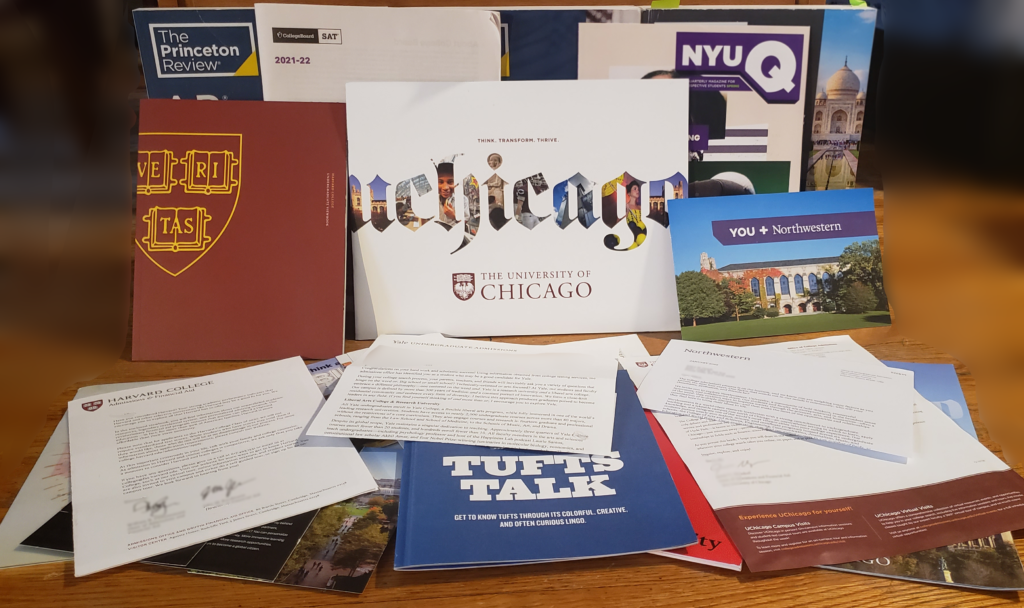
As the spring semester starts to wrap up, many Townsend Harris juniors are directing their attention into exams, coursework, and extracurricular activities. The long and arduous hours spent perfecting academic portfolios are all in preparation of the impending college application process in the coming months. In light of this period, The Classic spoke with current THHS seniors to learn about their strategies for the college application process, as well as any advice they had to offer to help juniors along their path.
First, in order to have a successful and smooth college application process, seniors recommend that juniors build a strong foundation during the summer months. Senior Eunice Lee said, “Juniors should definitely be the most productive this summer. Whether it’s an internship, writing their Common App essay, or curating their college list, this summer is the most important to do as much of the college process as possible.”
Senior Wania Hermanstyne also emphasized the importance of time management and said, “planning is key. Procrastinating on college applications will do nothing but cause you stress in the fall.”
Senior Alexandra Yick recommended juniors use these few months to reflect on which colleges to apply to. She said, “Deciding on what you might be interested in before you apply to colleges will really help narrow down which ones work best for you and can help in a lot of financial situations, if you don’t have a fee waiver.”
Seniors also discussed tips for writing the personal essay and writing supplements during the application process.
“Keep writing drafts, especially for larger prompts. Ask around for others to read them, whether it be family or friends, since they can see how well you’re conveying your true self to the college,” senior Kaitlyn Chung said. “The internet is a great resource for guidance on what colleges are looking for in prompts, but those around you know you the best and can see if you’re really showing it in your writing.”
Wania particularly recommended that individuals with insight into the admissions process read over essays. “Having your friends read it is okay, but not the best option because they don’t know what college admission officers are looking for.”
Those interviewed also shared their tips on limiting the amount of engagements students involve themselves in during their senior year so that they can better accommodate college applications into their schedules.
Eunice said, “If you are taking intense AP classes like AP Biology and QC classes, leading extracurriculars, and doing the Election Simulation, you need to think about how you can fit time in for college apps. Switch out classes or maybe don’t do S!NG if you feel the need not to.”
Alexandra said, “Don’t apply to 30 colleges. Do your research and select the ones that best suit you and your interests. It’ll really lower the amount of stress and make everything more manageable.”
When looking back on their college application processes, a few seniors shared some things that they would have done differently.
Alexandra said, “I really wish I applied to more scholarship opportunities outside of the colleges themselves.”
Kaitlyn said, “I didn’t do any Early Action applications, which is definitely something that I wish I did. A lot of people apply Early Decision for more competitive schools, so it’s not guaranteed that they will get in when there are so many [applicants]. However, with no limits on Early Action, having assurance that you are going to college early on in the process is pretty comforting while you work on your [Regular Decision] applications.”
Alexandra said, “I knew that applying to colleges would take a lot, but when each college you apply to has an $80 application fee, the costs really add up. For certain colleges, you can actually email the Office of Admissions and request a fee waiver.”
Offering some concluding thoughts, “Romanticize your process. Writing college applications is not fun when you think that your next four years hang in a 250 word limit,” Kaitlyn said. “Throughout the process, while you manage supplements, essays, and application fees, remember that the school doesn’t make your experience in college, you do. No matter what happens — whatever prompts you to regret your answer and say ‘[I] could’ve done better’ after submitting — it’ll work out in the end.”
Photo by Elliot Heath




























